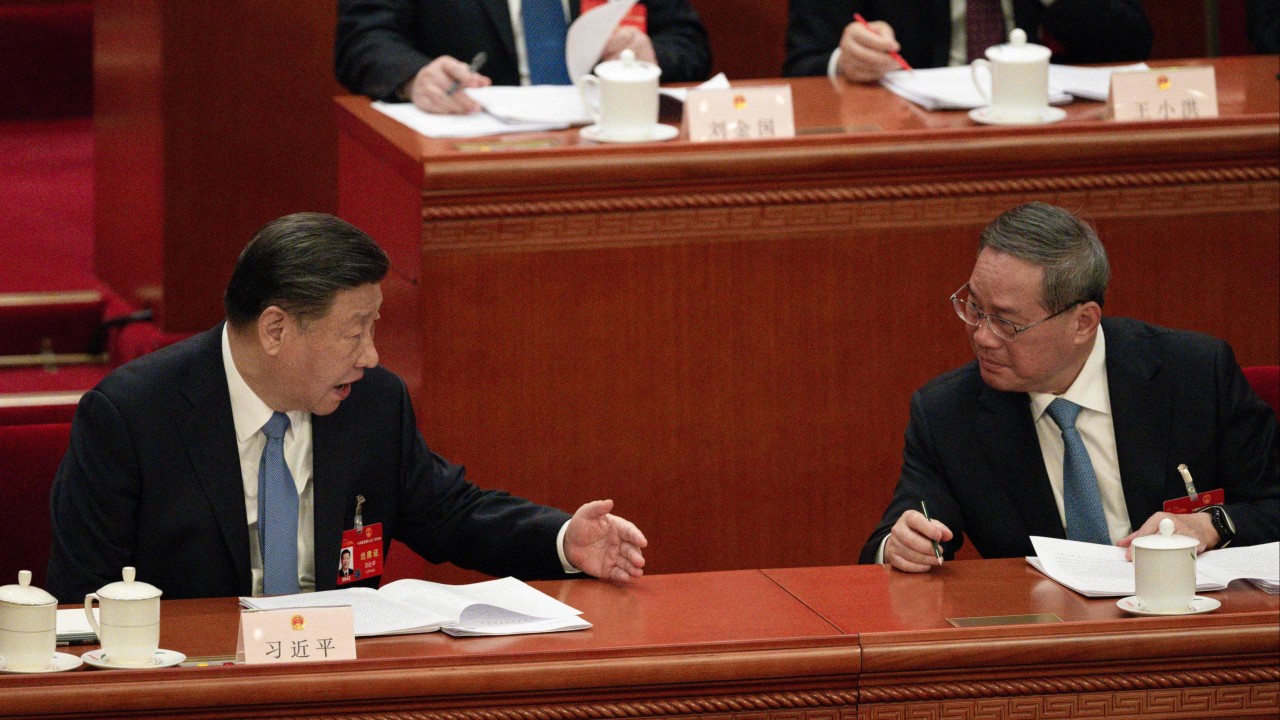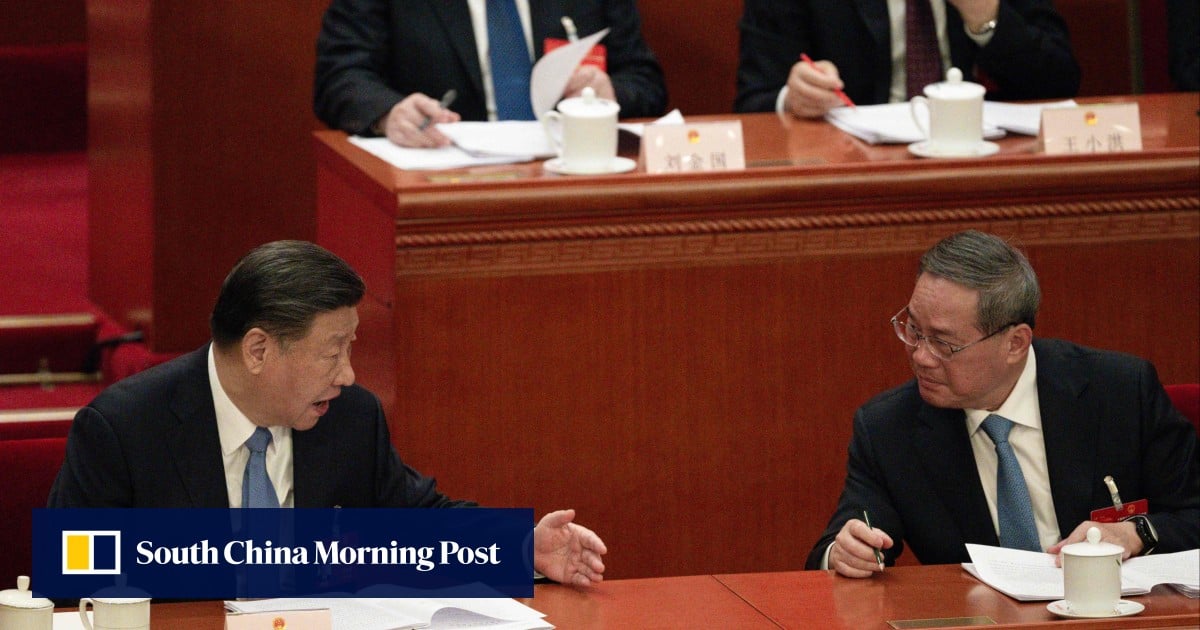
China’s AI gap with US is widening: ‘we are all very anxious’
China’s AI gap with US is widening: ‘we are all very anxious’
Xi’s instructions during the annual parliamentary meetings, known as the “two sessions”, appeared on the front page of all mainland newspapers and was the lead story on national prime time television news for days.
The comments are seen as the most prominent policy direction to come out of the two sessions so far, especially as Premier Li Qiang – China’s No 2 official – appears to be scaling back his office’s role in diplomacy and public discourse, which some view as a sign of humbleness and loyalty to Xi.
Xie Maosong, a senior researcher at the National Institute of Strategic Studies at Tsinghua University, said Xi’s panel discussions had become the “most important window” during the two sessions to get an understanding of China’s direction as the top leader spoke about the tech development goals three times.
Xie added that Beijing’s top leadership had reached a consensus on making breakthroughs in critical technologies the “single most important” determinant in China’s long-term economic and military competition with the US.
“All the leaders know that China cannot be like South Korea or Japan, relying on the US to provide core civilian and military technologies,” he said.
According to Xie, Xi hoped to see China consolidate its leading edge in electric vehicles, lithium batteries and solar cells while continuing research in revolutionary fields such as quantum technology and accelerating the research and development of emerging hydrogen energy, new materials, pharmaceuticals and domestic commercial liners.
China’s ‘two sessions’: Xi tells scientists to fight the tech battle well
China’s ‘two sessions’: Xi tells scientists to fight the tech battle well
Brian Wong, an assistant professor of philosophy at the University of Hong Kong, said China must be mindful of the pros and cons of its unique system and learn selectively from the American model to prevail in the tech marathon.
He said the Chinese system had unique advantages, including the ability to quickly deploy large amounts of capital towards “winning” industries picked by the state.
He added that China has an “incredibly compliant and adaptive” private sector that does not push back too hard against state regulations while Chinese people have vast savings, which is very different from the US.
But he warned that given the long-standing low productivity and efficiency within Chinese state-owned enterprises, Beijing must let the private sector have a bigger say over “where the resources should be allocated and what innovations the market likes”.
“That will be more conducive to achieve a consumption-led hi-tech economy.”
Hong Kong-based military expert Liang Guoliang said the PLA’s strategic support force was a major growth point for the “new quality combat capabilities” Xi has ordered.
“China kick-started its military reform with a vision of winning the next ‘smart war’,” Liang said, referring to the use of AI and robotics in military conflicts and intelligence.
“But there is still huge room for development. I think only a small part of China’s military forces has achieved joint operation capabilities. A lot more needs to be done in this regard.”

